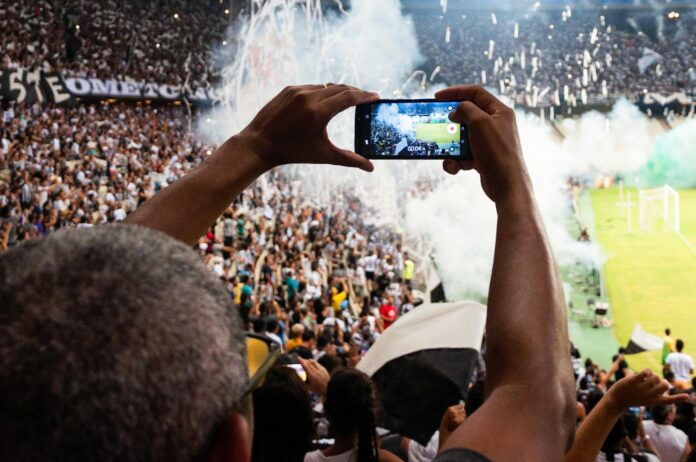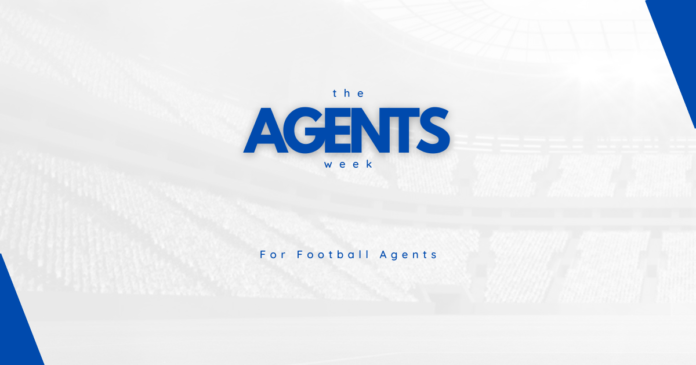Introduction
L’une des phases les plus difficiles pour un agent de football est de sécuriser son premier client, surtout si vous travaillez de manière indépendante et n’êtes pas affilié à une grande agence. Cette période peut être stressante, exigeant patience et dévouement pour identifier et saisir la bonne opportunité, afin d’établir une relation agent-client réussie.
Dans ce blog, nous explorerons des stratégies pour trouver votre premier client et les étapes à suivre dans ce processus crucial. De plus, nous discuterons de la progression vers la signature d’un contrat de représentation et nous exposerons les essentiels à faire et à ne pas faire pour les agents en herbe.
Sélectionnez votre niche de client
Dans le monde moderne des agents de football, il est possible de représenter une variété de clients dans différents secteurs, y compris les clubs, les joueurs, les dirigeants sportifs et les entraîneurs. Chaque niche offre des défis et des opportunités uniques, permettant aux agents de se spécialiser dans les domaines qui correspondent le mieux à leurs compétences, réseaux et intérêts. Cependant, pour ce blog, nous nous concentrerons sur ce qui est sans doute le type d’agent le plus courant : ceux qui cherchent à recruter et représenter des joueurs. Cette spécialisation implique de comprendre les nuances du recrutement de joueurs, de la négociation de contrats et de la gestion de carrière personnelle, fournissant une vue d’ensemble pour les agents en herbe cherchant à se lancer dans ce domaine particulier et à recruter leur premier joueur.
Trouver l’opportunité
Selon votre âge et votre expérience préalable dans l’industrie du football, trouver une opportunité de recruter un joueur peut varier en difficulté. Pour les jeunes agents, de telles opportunités sont plus susceptibles de se présenter en assistant à autant de matchs que possible. En identifiant votre clientèle cible et d’autres spécificités, vous pouvez affiner les types de matchs auxquels assister. Par exemple, un jeune agent pourrait se concentrer sur les matchs d’académie pour s’engager avec les recruteurs et les parents des joueurs en dessous du niveau de l’équipe première. Assister aux matchs des jeunes académies est crucial car cela vous permet de nouer des relations avec les parents et d’autres personnes au fil du temps, ce qui peut être précieux lorsqu’ils commencent à chercher un agent.
Selon les règlements essentiels de la FIFA sur la protection des mineurs, les agents ne peuvent pas conclure d’accords de représentation tant que le joueur n’est pas à moins de six mois de l’éligibilité pour signer son premier contrat professionnel. Cet âge varie selon les pays. En Allemagne, les joueurs peuvent signer des contrats professionnels à 16 ans, donc les agents essaieront de les représenter à 15 ans et demi. Dans d’autres pays, les agents doivent attendre que les joueurs aient 17 ans et demi avant de signer un accord de représentation. Assister aux matchs avant cet âge vous donne l’opportunité d’établir les bases d’une relation pour le moment venu où cela sera permis.
Les matchs de football peuvent parfois être un environnement intimidant. De nombreux nouveaux agents ont du mal à aborder les parents ou les recruteurs et à entamer des conversations. Il est crucial pour un agent en herbe de devenir à l’aise avec le fait de prendre contact et d’engager des conversations dans ces contextes.
Cette aisance vient avec la répétition. Plus vous vous mettez dans des situations inconfortables et vous forcez à parler directement aux gens, plus cela deviendra facile. Bien que toutes les conversations ne se déroulent pas comme prévu, le pire résultat est de ne pas réussir à établir une relation. Cependant, la plupart des conversations mèneront à des interactions futures et pourraient ouvrir des possibilités, y compris signer votre premier client. Le but de ces conversations initiales est de laisser une bonne impression et d’obtenir des coordonnées pour rester en contact.
Au fil du temps, avec persistance et effort, une opportunité pourrait se présenter où vous apprendrez qu’un joueur cherche une représentation. Si vous avez construit un réseau de contacts, vous pouvez contacter les parents du joueur ou le joueur directement s’il a plus de 18 ans. Les prochaines étapes sont cruciales et impliquent souvent d’éviter certains pièges plutôt que de se concentrer uniquement sur ce qu’il faut faire.
Il est important de noter si vous travaillez seul, en tant que membre d’une petite agence ou en tant qu’employé de recrutement d’une grande agence. Chaque configuration a ses propres avantages et inconvénients. Ceux des grandes agences ont accès à un réseau plus large et peuvent impliquer des agents seniors dans les discussions, montrant les services offerts aux joueurs vedettes. Cependant, ils sont généralement des employés salariés. À l’inverse, les agents des petites agences peuvent travailler sur un partenariat basé sur des commissions, leur accordant plus de pouvoir et d’influence. Votre mode de travail influencera vos méthodes pour identifier les opportunités et comment vous travaillez avec les joueurs.
Ce qu’il ne faut pas faire
Lorsque l’opportunité de signer votre premier client se présente, il est crucial de ne pas devenir trop excité et de précipiter le processus. Certains agents peuvent essayer différentes tactiques pour accélérer les choses, mais agir de manière non professionnelle entravera probablement votre succès.
Voici quelques points clés à éviter, suivis d’alternatives conseillées plus tard dans le blog.
Ne pas utiliser les réseaux sociaux pour approcher les joueurs ou leurs familles
Bien que les réseaux sociaux puissent aider à identifier les joueurs et leurs proches, les approcher directement par ces plateformes est non professionnel et souvent mal accueilli. Utilisez plutôt les réseaux sociaux pour recueillir des informations discrètement et chercher des moyens plus appropriés de prendre contact.
Ne pas abuser des informations de contact
Si vous avez identifié les parents d’un joueur ou une autre méthode de contact, ne l’abusez pas. Les messages répétitifs et impatients risquent de les irriter et de nuire à vos chances de construire une relation. Évitez de les faire se sentir pressés en insistant pour passer tout le match avec eux. Présentez-vous plutôt comme une figure de soutien et professionnelle.
Ne pas faire en sorte que la famille se sente aliénée
Pour les clients plus jeunes, il est important de vous intégrer en tant que membre de l’équipe de soutien du joueur, presque comme un membre de la famille élargi. Offrez votre expertise et un soutien plus large pour favoriser un esprit d’équipe, plutôt que de donner l’impression que vous les « enlevez » de leur réseau de soutien existant.
Ne pas approcher les joueurs mineurs
Si un joueur montre un grand potentiel mais n’est pas en âge légal, ne l’approchez pas. Cela enfreint les règlements de la FIFA et des associations nationales et démontre un comportement non professionnel. Les familles et les joueurs vous excluront probablement de toute considération future en faveur d’agents plus professionnels.
Ne pas mentir sur vos qualifications
Depuis l’entrée en vigueur des nouvelles régulations de la FIFA, il y a eu de la confusion quant au moment où les agents peuvent approcher les joueurs ou leurs familles. Vous ne devez pas vous présenter comme un agent si vous n’avez pas obtenu votre licence FIFA. Bien que vous puissiez assister à des matchs et parler aux gens, ne le faites pas en tant qu’agent ou ne discutez pas de vos intentions en tant que tel.
Ne pas offrir des incitations financières
Ne proposez jamais d’argent à un joueur ou à sa famille pour les encourager à signer avec vous. Parfois, les parents pourraient demander de l’argent, mais si un joueur signe initialement pour des incitations financières, il pourrait partir pour une autre agence offrant plus d’argent. Construire une relation professionnelle sur des récompenses financières est imprudent. La seule exception est de s’associer à un agent familial licencié, où les détails financiers sont basés sur des commissions partagées convenues.
En adhérant à ces lignes directrices et en maintenant un professionnalisme, vous pouvez mieux vous positionner pour construire des relations solides et durables et représenter les joueurs avec succès.
Les essentiels
À l’inverse de ce qu’il ne faut pas faire, voici les essentiels :
Initiez des conversations professionnelles
Au lieu d’utiliser les réseaux sociaux, la façon professionnelle d’initier une conversation avec un joueur ou sa famille est de les approcher de manière appropriée lors d’un match. L’interaction en personne est la méthode la plus efficace pour faire une bonne première impression. Présentez-vous et expliquez brièvement votre rôle en tant qu’agent. Avec le temps, vous vous reconnaîtrez lors de futurs matchs, permettant des salutations informelles ou des conversations plus approfondies lorsque c’est approprié. Juger le bon moment pour engager une conversation par rapport à simplement dire « bonjour » est crucial. Finalement, vous pourrez obtenir leur numéro de téléphone ou d’autres coordonnées, permettant des discussions plus formelles, comme des appels téléphoniques ou des réunions vidéo, sur la représentation du joueur.
Évaluez le timing soigneusement
Le timing est essentiel. Discuter de la représentation prématurément peut nuire à votre relation. Concentrez-vous sur la construction d’une bonne relation de confiance avec le joueur et sa famille avant d’aborder la possibilité de représentation. Dans certains cas, les agents ont conclu des accords commerciaux, comme sécuriser des contrats de chaussures pour les joueurs, avant qu’ils ne soient éligibles à signer un contrat de représentation. Assurez-vous que cela soit conforme aux règlements, car cela peut être un moyen de renforcer votre relation jusqu’au moment opportun pour un contrat de représentation.
Suivez un processus de recrutement professionnel
Une fois que vous avez pris contact et abordé le sujet de la représentation, passez aux étapes du recrutement. Bien que les étapes exactes puissent varier, voici un aperçu typique d’un processus de recrutement approprié :
- L’approche : Présentez-vous au joueur et/ou à sa famille, prenez contact et commencez à établir la relation.
- Réunion organisée : Organisez une réunion dans un environnement confortable et neutre comme un café ou un restaurant. C’est votre opportunité de montrer votre valeur en tant qu’agent et de présenter une évaluation personnalisée du joueur. Le but est de générer de l’intérêt et de l’engagement, conduisant à des conversations futures. Ce n’est pas une réunion de signature de contrat mais une introduction à vos services.
- Engagement continu : Assistez régulièrement aux matchs pour interagir avec la famille et évaluer davantage le joueur. Votre présence démontre de la dédication et de l’intérêt, ce qui peut impressionner le joueur et sa famille. Tout au long de ce processus, mettez en évidence comment vous pouvez ajouter de la valeur à la carrière du joueur.
- Clôture : Le processus de recrutement peut durer de quelques semaines à un an, selon la situation du joueur et la relation que vous construisez. Lorsque vous sentez que le moment est venu, ou si le joueur et sa famille expriment de l’intérêt, discutez du contrat de représentation. Insistez pour qu’ils cherchent des conseils juridiques indépendants et soyez prêt à répondre à toutes les questions. Rappelez-vous, la patience et le professionnalisme sont clés. Ne les précipitez pas dans une décision; aidez-les si nécessaire, mais respectez que la décision finale leur appartient.
En adhérant à ces principes et en maintenant un professionnalisme, vous pouvez établir des relations solides et durables et représenter les joueurs avec succès.
Signer un accord de représentation
Une fois qu’un joueur décide de signer avec vous en tant qu’agent, les deux parties exécuteront un contrat de représentation. Ce contrat établit un accord légal et exécutoire entre vous, décrivant des clauses spécifiques auxquelles vous devez tous deux adhérer. Il est crucial de s’assurer que les termes soient favorables et acceptables pour le joueur et pour vous en tant qu’agent.
Le contrat de représentation offre une sécurité juridique et une protection pour les deux parties. En incluant toutes les informations et exigences pertinentes, il aide à prévenir toute inconduite dans la relation. Une violation du contrat peut entraîner une résiliation pour juste cause, protégeant le joueur si l’agent agit de manière non professionnelle. À l’inverse, la clause d’exclusivité offre une protection pour l’agent, garantissant que le joueur ne s’engage pas avec d’autres agents pendant la durée du contrat. Vous pouvez lire plus sur les accords de représentation dans notre blog ici.
Résumé
Sécuriser votre premier client en tant qu’agent de football est une étape significative qui requiert patience, dévouement et professionnalisme. En vous concentrant sur la construction de relations authentiques, la compréhension des règlements et le suivi d’un processus de recrutement structuré, vous pouvez naviguer efficacement dans les complexités de l’industrie. En évitant les comportements non professionnels et en mettant l’accent sur les interactions en personne, vous laisserez des impressions positives et développerez des connexions durables. Rappelez-vous, chaque étape que vous franchissez pour établir la confiance et démontrer votre valeur peut ouvrir la voie à une représentation réussie. Restez persévérant, maintenez des normes élevées, et vous serez bien parti pour une carrière gratifiante en tant qu’agent de football.
Cela nous amène à notre prochaine question : que faire une fois que vous avez signé vos premiers clients ? La semaine prochaine, nous répondrons exactement à cela et nous nous assurerons que vous êtes bien équipé pour fournir le meilleur service possible à votre tout premier client joueur !








